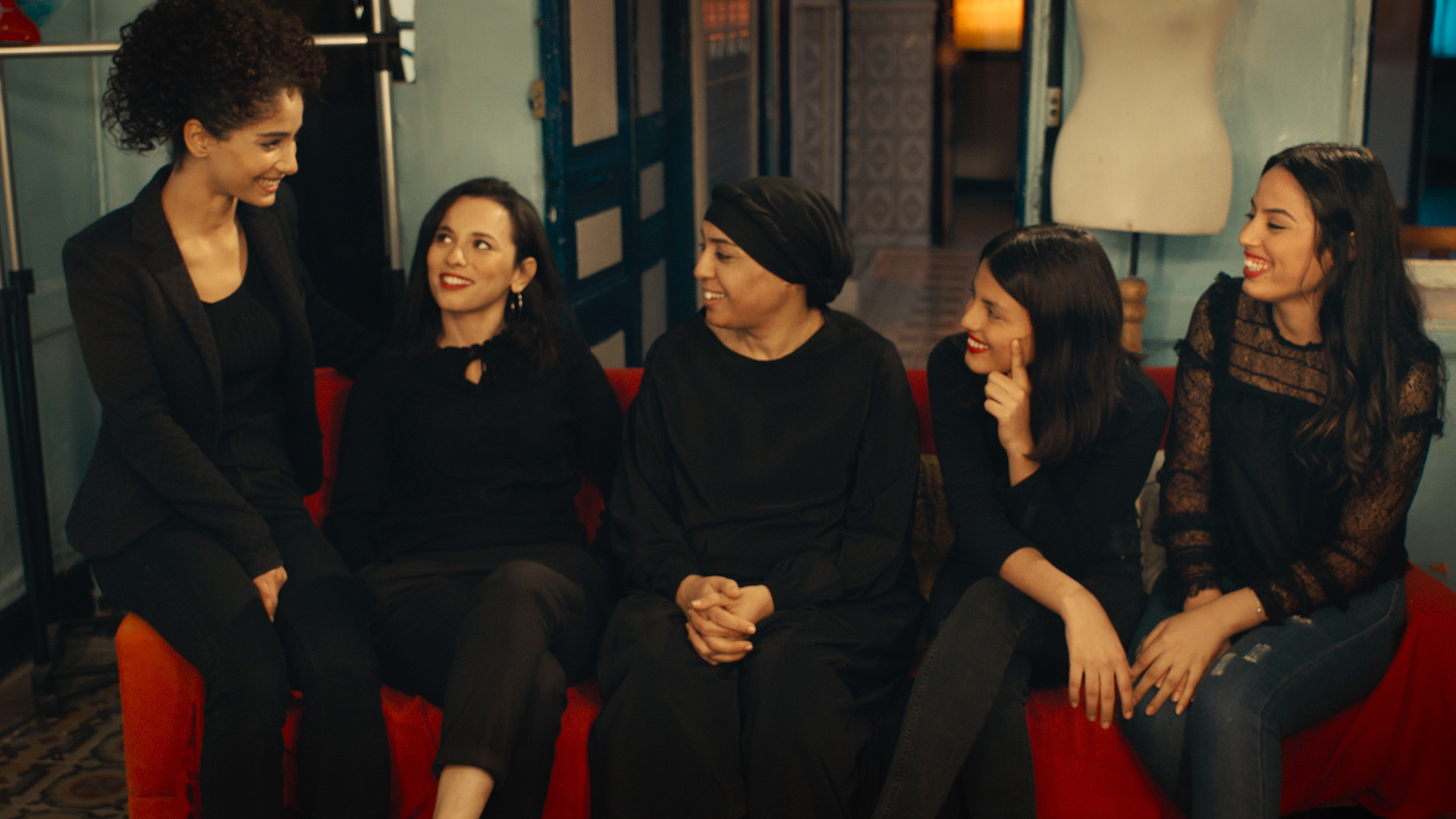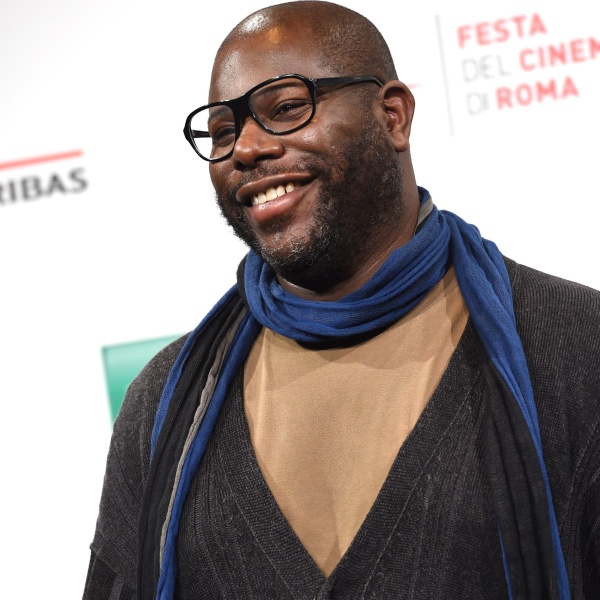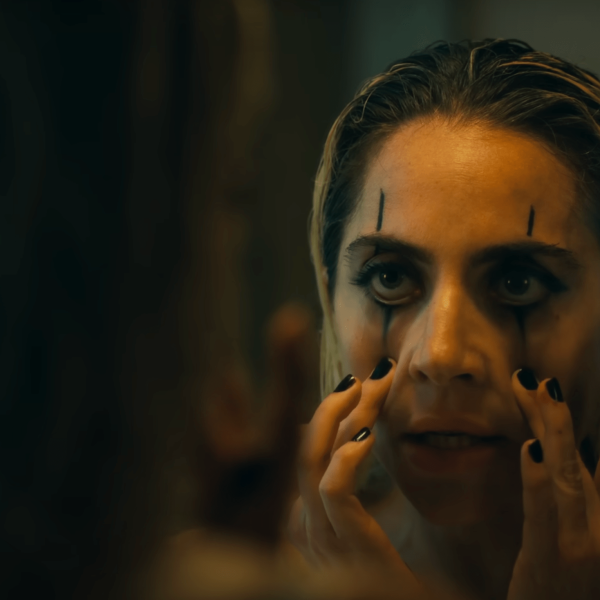
Traditional fiction storytelling seemed daunting for Tunisian director Kaouther Ben Hania. Thus, when embarking on her fiction feature debut a decade ago, she opted to craft a provocative mockumentary, “Challat of Tunis,” inspired by real-life attacks against women. The format allowed her to have the freedom of documentary filmmaking, including a small crew, in order to confront her long-held aversion to the artificiality of scripted drama.
“I found fiction difficult because you are bringing people who don’t know each other, actors specifically, and you ask them to be as authentic as possible. I was obsessed with authenticity. Knowing that we all lie, how do we get to the heart of some truth,” she told IndieWire during a recent interview.
“Four Daughters,” her latest documentary, incorporates elements of fiction into the true story of Olfa Hamrouni, a woman whose two eldest children were radicalized by the Islamic State. Ben Hania first became aware of the mournful mother in 2016 watching one of the many TV interviews Hamrouni gave after her case garnered media attention in Tunisia.
“Why did those two young, beautiful girls go through this tragic deadly path?,” she wondered. That was the question that propelled the filmmaker to pursue the heartbreaking narrative.
To soften Hamrouni’s distress of exposing her ordeal once again, Ben Hania cast an actress (Hind Sabri) to portray her in recreations of difficult passages from her life, and two other performers to play the absent daughters. Her two youngest, Eya and Tayssir Chikhaoui, play themselves in the scenarios based on their past. Hamrouni herself still appears in the doc, adding insightful commentary or being rattled by the emotions the process brings up.
This year’s Tunisian Oscar entry for Best International Feature Film, “Four Daughters” has already earned plenty of acclaim. The film recently won Best Documentary at the Gotham Awards and it’s nominated in the same category at the Independent Spirit Awards.

Ben Hania believes she couldn’t have completed a film as difficult in theme as “Four Daughters” without the cumulative skills gained throughout her career. Making docs, such as the France-set “Imams Go to School,” for example, taught her how to direct actors.
“In documentary, you can see how people talk in an authentic way. They repeat things, their sentences are not clean statements,” she said. “When I direct an actor, I don’t like it when they do it in an almost theatrical way. One trick that helps me is I say, ‘Do it like in real life. Imagine I’m your best friend and you are telling me this line of dialogue.”
Her commitment to reality is such that even her more strictly fictional works, “Beauty and the Dogs,” about a woman seeking justice following a sexual assault, and the Oscar-nominated “The Man Who Sold His Skin,” set in the art world, emerged from true stories.
Hamrouni and her daughters were never hesitant about their involvement; it was the weight of being trusted with their story that early on made Ben Hania feel she would have to abandon the project.
“Olfa and her two youngest daughters were my partners. It’s their story. I was there only to tell it. I was transparent with them about the process,” she said. “They don’t know about filmmaking, but as you can see in the movie, they are natural born storytellers.”
Initially, the director considered taking a more straightforward, fly-on-the-wall approach, but later became convinced that the distance using an actress creates would yield honest portrayal of Hamrouni. “I tried to show her in all her complexity, where she was brought up and all the abuse she had in her childhood,” she said. “She is a loving mother and a horrible mother.”
Hollywood had multiple offers for Ben Hania following the Oscar nomination for the “The Man Who Sold His Skin,” about a Syrian refugee willing to offer his body as a canvas in exchange for entry into Europe, in the Best International Feature Film category in 2021.
People around her were shocked to learn her plan was to return to Tunisia to make a documentary rather than accept the packaged productions based on IP she was considered for. “There was no connection between me and those projects,” she said. “I need a very deep emotional connection to the story, so I can fight for it all the way till the end.”

Not opposed to working in fiction with a larger budget now, Ben Hania is currently developing a sci-fi project designed to star an English-speaking cast, likely American.
The recognition from the Academy two years ago, the first ever nod for a Tunisian film, came as an overwhelming surprise given that the funds available to campaign “The Man Who Sold His Skin” were minuscule in comparison to what was invested in other contenders.
“We didn’t have any money, but the movie was adopted by some voters,” she said. “We later discovered it was mainly a word-of-mouth thing, which is better than any advertising.”
The national pride over such an internationally visible accomplishment coincides with a flourishing, post-revolution period for cinema in the North African country over the last few years, particularly as it pertains to women directors making daring films in Tunisia such as Leyla Bouzid (“As I Open My Eyes”) and Erige Sehiri (“Under the Fig Trees”).
“It’s not only in Tunisia. It’s a phenomenon that I see all over the Arab region,” said Ben Hania. “If you go to Lebanon, to Egypt, even Saudi Arabia, right now you have a lot of women directors. In term of percentage, it’s very interesting to see that women directors in the Arab region are more present than women directors in Hollywood.”
Ben Hania’s work has already had impact in Tunisia beyond its artistic intent. In 2017, “Beauty and the Dogs” served as a tool for a feminist organization to promote awareness in rural areas about a then recently passed law to protect women against harassment and sexual violence. Now, “Four Daughters” is being screened as part of a campaign against child abuse by the country’s Ministry of Women, Family, Children and Seniors.
“Filmmakers can’t change things in a drastic way since we don’t have political power, but we can change the way people look at things, which is more interesting in a way,” she said. “It’s the soft power of shaping ideas and changing how you deal with a problem.”




